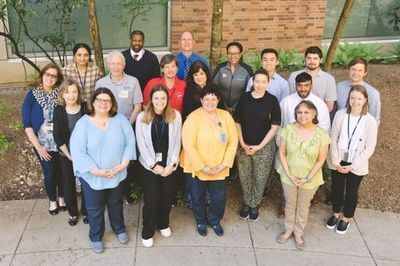Our Focus Remains on Research and Education

2025 Grants and Fellowships
Through these initiatives, we seek to advance our understanding of the pathological mechanisms of Kennedy's Disease and support the development of potential treatments. The KDA is committed to driving progress through innovative research and collaboration.
Details and proposal instructions are provided below. Please note the submission date for both programs is Monday, June 2, 2025.
Awards will be announced in September after review by KDA's Scientific Review Board. Please direct any questions by Contacting the KDA.
Grants Award Process
The KDA grant awarding process takes place in the fall. In the late summer, the KDA announces to all known Kennedy’s Disease Researchers that anyone interested should send in their grant requests as outlined in the proposal notification. The Scientific Review Board reviews all applications with a focus on research projects that are specific to or could be used in finding a treatment or cure for Kennedy’s Disease. The Scientific Review Board recommends to the Board of Directors which applicant(s) should receive research funding. The Board of Directors notifies all candidates and awards the grants normally in October.
-
Grants up to $100,000 are available for one or two years. Junior investigators and senior post-doctoral fellows are encouraged to apply. For more information, please download our Request for Proposals.
-
Fellowships for junior researchers provide $75,000 for one year of salary and benefits and a $2,000 travel allowance. Awardees are expected to devote at least 70% of their time to SBMA research. For more information, please download our Request for Proposals
-
Student Travel Grants
Post-docs and graduate students interested in attending KDA's annual conference in Orlando (2-4 November) can apply for a student travel grant to offset the cost of your trip. The conference will be a unique opportunity to interact and learn from other SBMA researchers.
Thanks to generous contributions from one of our member families, the Kennedy’s Disease Association (KDA) is pleased to announce the availability of travel funds for post-doctoral scholars and graduate students who would like to present their current Kennedy’s disease (SBMA) research at a conference related to neuromuscular diseases, neurology, or related topics. (Note: The requirement for presenting research is waived for attendance at the 2024 KDA conference.)


